Geneva Peace Week Event: Key Takeaways
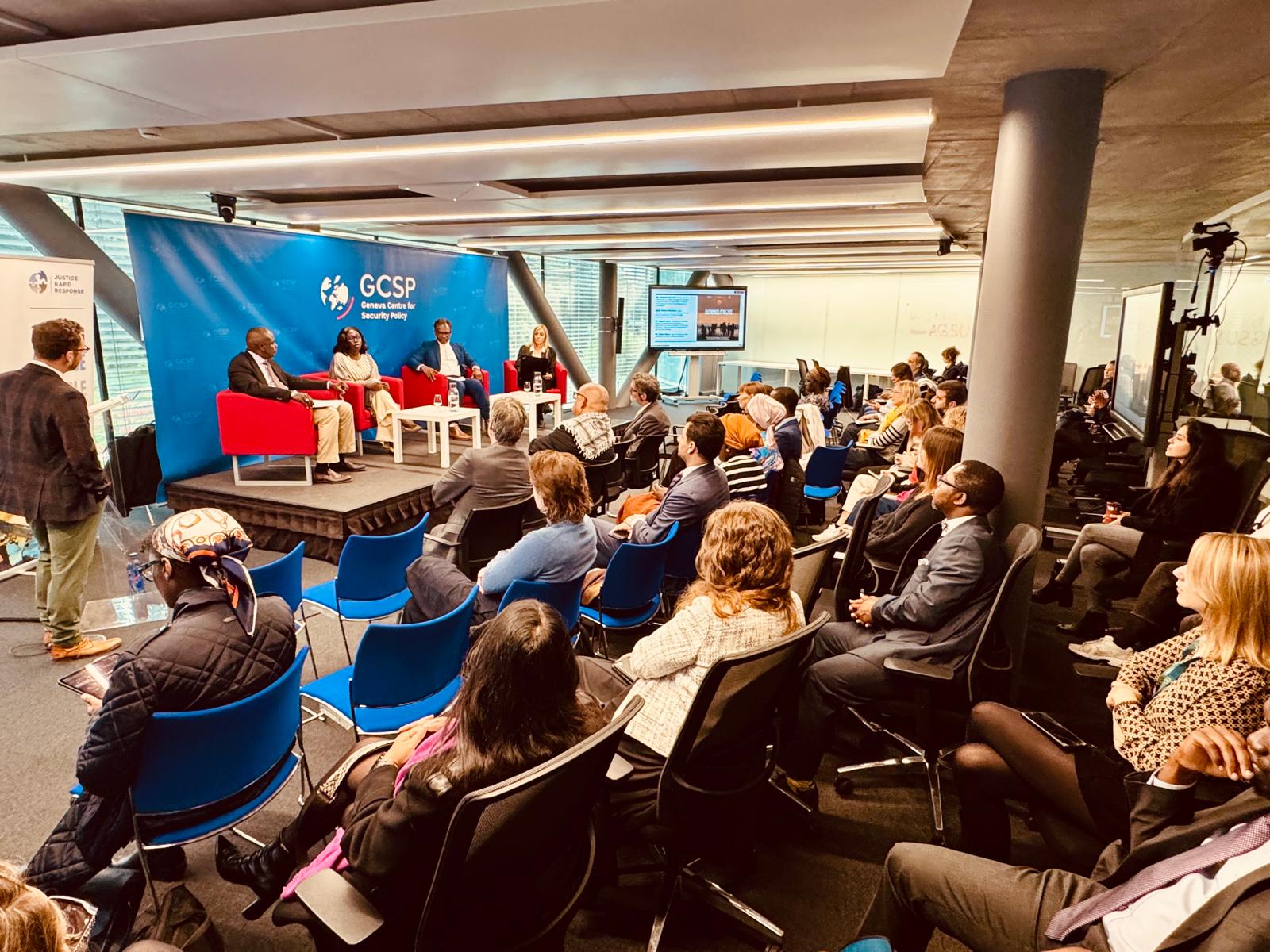
Panelists participating were (from left to right) Amb. Cherno Marenah, Ms. Ayeshah Jammeh, Mr. Didier Gbery and Dr. Eugenia Cunha. Photo credits: Nicolas Braguinsky Cascini.
On 16 October, in the context of the Geneva Peace Week, Justice Rapid Response (JRR) premiered its new short-documentary film on The Gambia’s transitional justice process entitled Ayeshah’s Podcast: Forgotten Voices of The Gambia in partnership with the Permanent Mission of Canada and The Gambia to the UN in Geneva and the International Center of Transitional Justice.
The film recalls how Ms. Ayeshah Jammeh, human rights activist, survivor and niece of the former Gambian dictator Yahya Jammeh, lost her father to the hands of the Junglers, Yahya Jammeh’s killing squad. It also touches on her experience with The Gambia’s transitional justice process, what challenges she is facing, what innovative approach to justice she pursues to promote justice through her own means, and what is still needed for her and many other Gambians to effectively obtain justice.
The panel discussion that followed was an occasion to learn more about the challenges faced in the context of the country’s transitional justice process, but also the innovative solutions being implemented to keep advancing towards a true victim-centered justice.
Check out the main takeaways of our panel discussion below :
- A continued and sustained involvement of victims and survivors through the entire process needs to be fostered. It’s the only way that a true and effective victim-centered justice can be achieved.
- Continued and strengthened coordination efforts will be needed among the various actors involved in the process to ensure that victims and survivors obtain the support they need, particularly in relation to medical and psychosocial assistance.
- Among the next steps identified is to build and consolidate a national database of victims to help the newly established Reparations Commission provide financial compensation to victims and survivors.
- Identify and engage with local communities to develop collective reparations initiatives. These reparations could take many forms, including memorialization initiatives.
- There is a deep desire from victims and survivors to see the recommendations of the Truth Reconciliation and Reparations Commission (TRRC) being implemented as soon as possible. However, developing the appropriate approach to do so takes time. Therefore, the authorities need to find ways to manage expectations for victims and survivors. Further, not all perpetrators will be prosecuted because of the scale of the human rights violations and crimes at stake. Other forms of remedies will need to be sought to promote victims and survivors’ rights and access to justice.
- To effectively set up the Special Accountability Mechanism and ensure the efforts invested so far are not in vain, political will from the local authorities and continued financial, technical and logistical support will be needed from the international community. Otherwise, there is a risk of losing support and creating a fatigue within the Gambian population and for international partners, should the implementation of the TRRC’s recommendations be delayed further.
- Despite the involvement of international partners, local ownership needs to be fostered. It is important to ensure that the Gambian authorities remain the sole steering force of this process.
- When investigating cases of enforced disappearances, it is important to include relatives in the process. Ensuring they are part of the investigation may also help to complement information already gathered by the investigative team.
- Finding innovative ways to inform and get the population to be actively engaged, especially younger generations, regarding the ongoing process is key as they will be the ones leading the main justice and accountability mechanisms that will have been created to bring justice to victims and survivors and steer the country toward durable and sustainable peace.
JRR wishes to thank Ms. Ayeshah Jammeh for sharing her story with us, its partners, the Permanent Missions of Canada and The Gambia and the International Center for Transitional Justice, and the Geneva Peace Week for greeting us. See you next year!
This project was made possible thanks to the support of Canada through Global Affairs Canada.
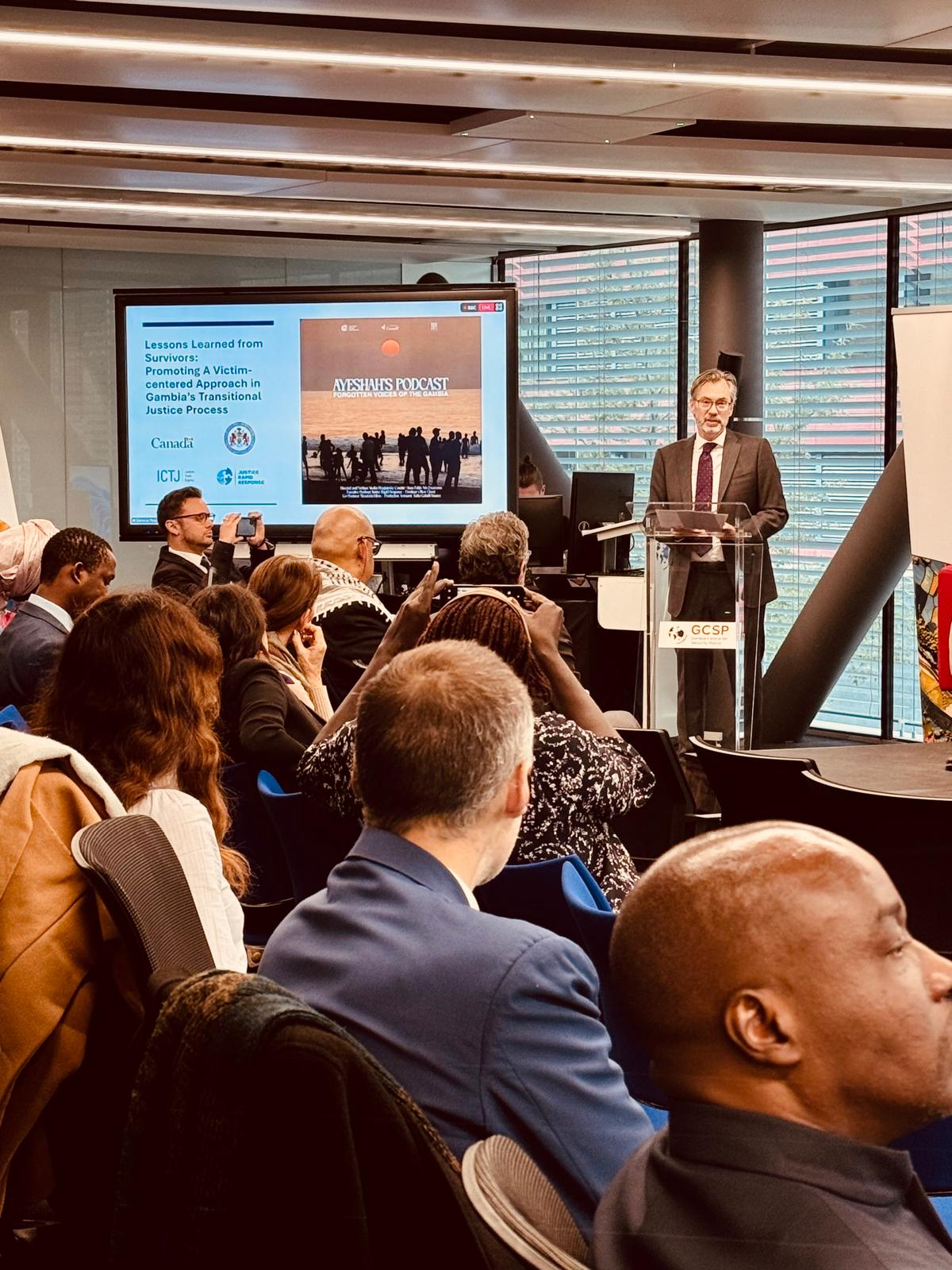
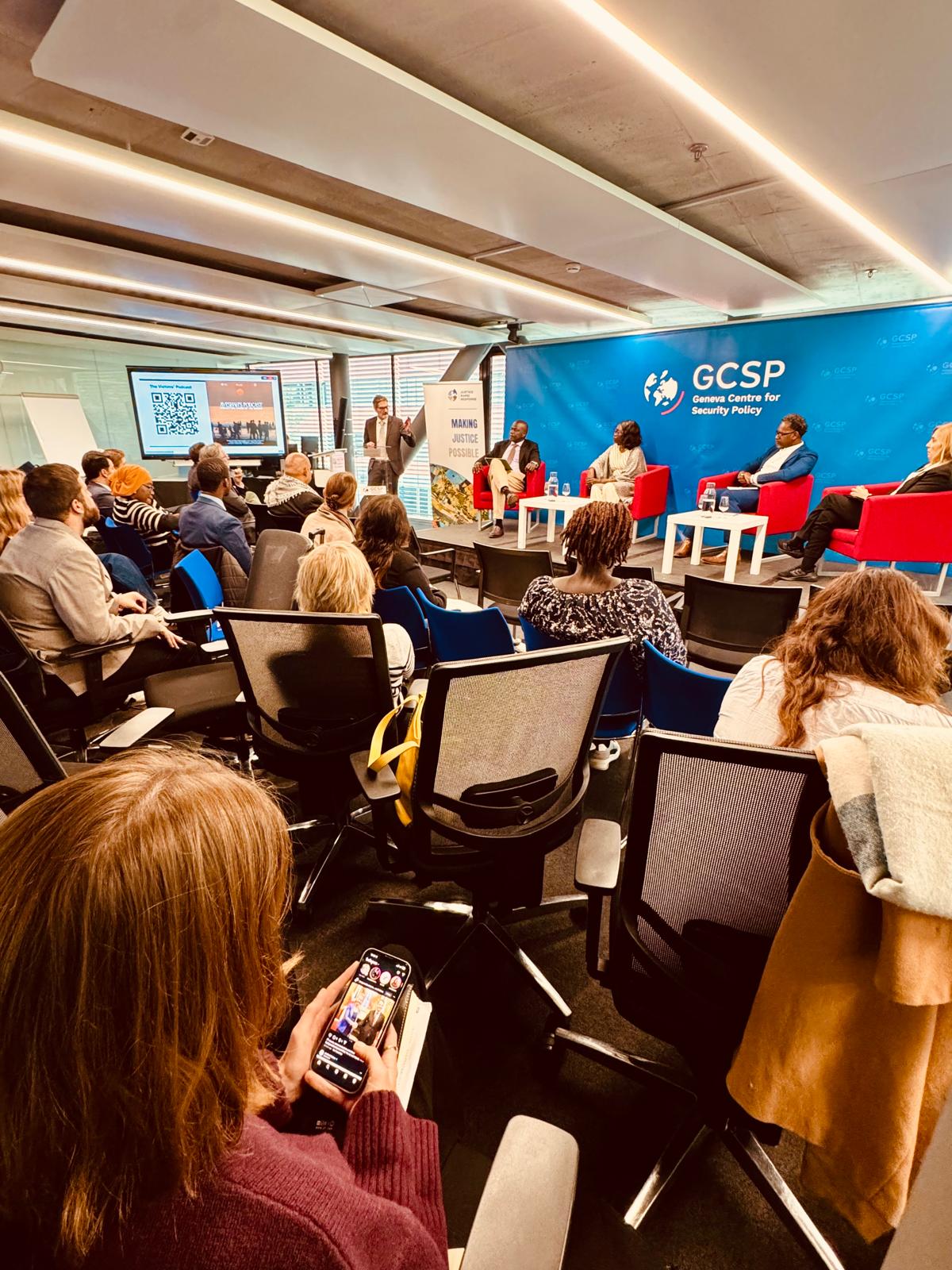
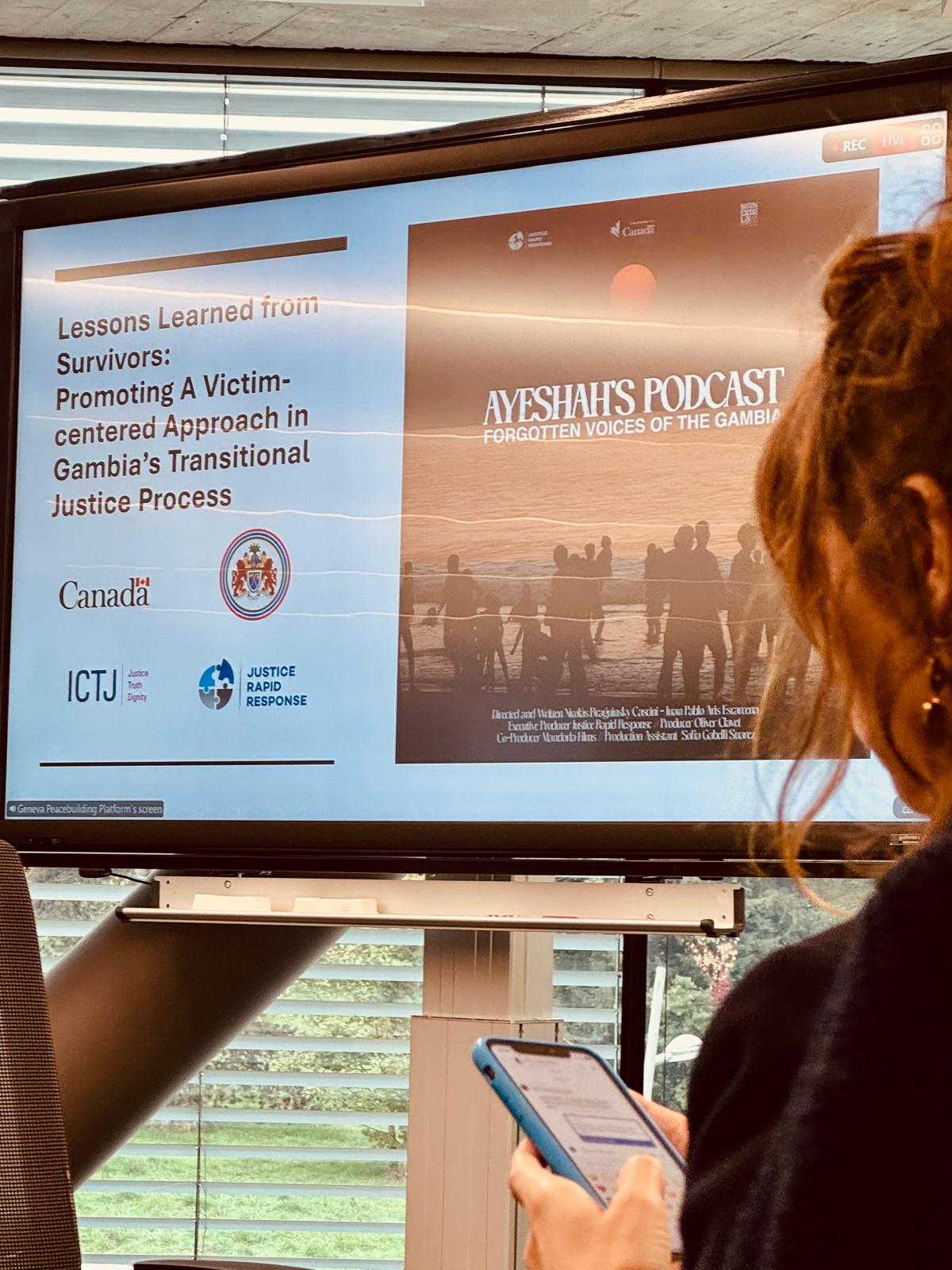
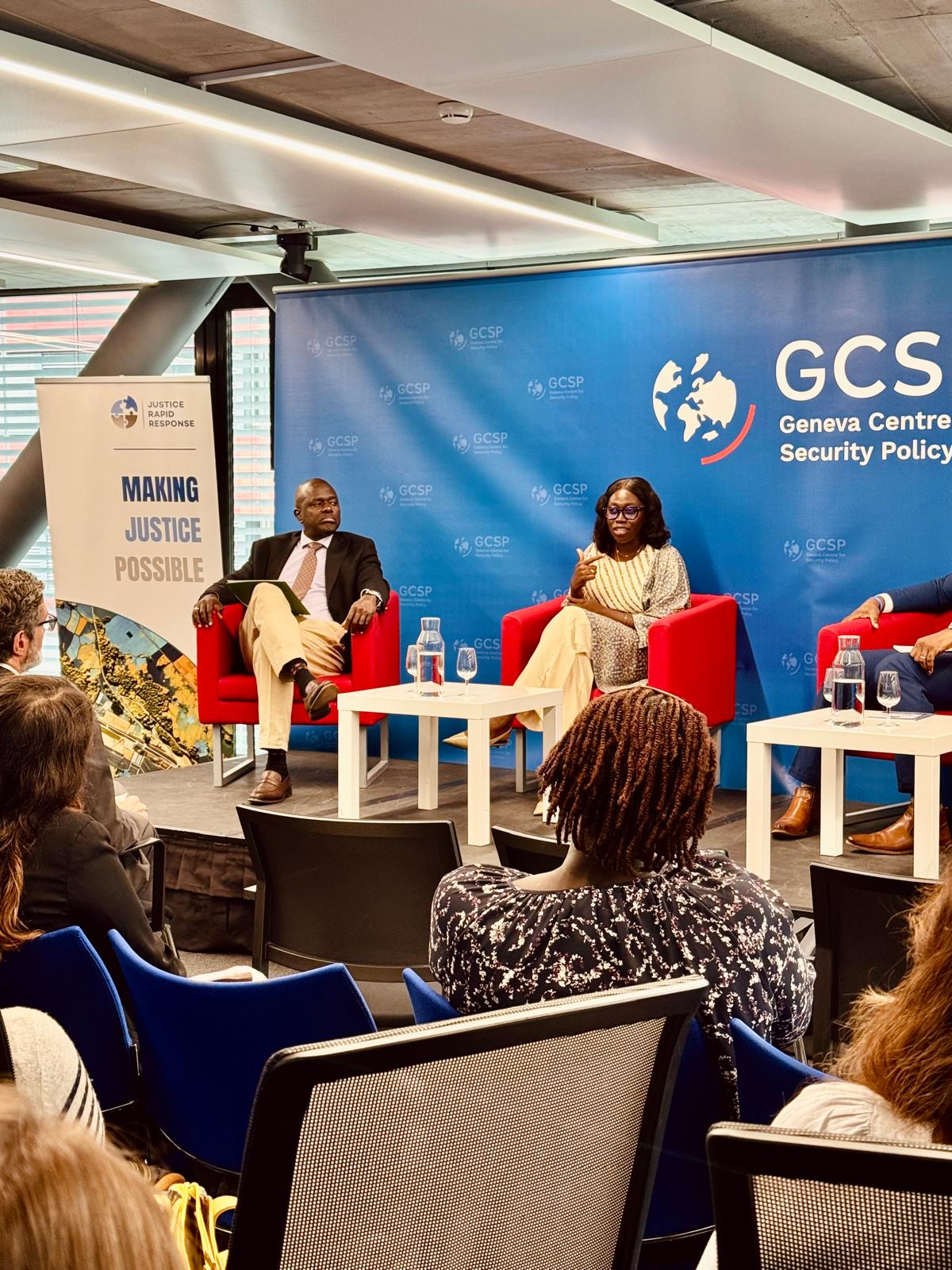
From left to right, Canadian Amb. Peter MacDougall, the panelists, the official poster of our new short-documentary and Gambian Amb. Cherno Marenah and Ms. Ayeshah Jammeh. Photo credits: Nicolas Braguinsky Cascini.
